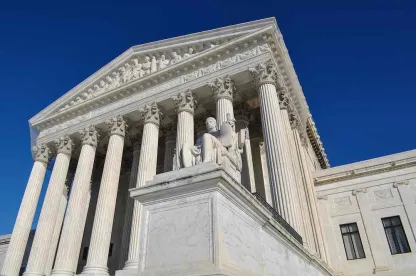How much detail must a plaintiff allege to meet the heightened pleading standards that apply in an FCA case? Appellate courts have taken different approaches, but given a chance to address a seeming circuit split, the Supreme Court declined to clarify a standard.
On October 17, the Supreme Court denied the petitions for certiorari in Johnson v. Bethany Hospice & Palliative Care LLC (11th Cir.), U.S. ex rel. Owsley v. Fazzi Associates, Inc. (6th Cir.), and Molina Healthcare of Illinois, Inc. v. Prose (7th Cir.). Petitioners in all three cases asked the Court to clarify the level of detail needed in an FCA complaint to satisfy Rule 9(b)’s particularity requirement, which applies in fraud cases like those under the FCA. In doing so, they argued that there was a “longstanding” and “widely acknowledged” circuit split among federal courts on this issue that confuses litigants and leads to inconsistent results.
Pleading Actual Claims vs. Plausible Inferences
In Molina, the Seventh Circuit allowed a relator’s complaint to move forward despite its lack of specific details of the alleged false claims, reasoning that fraud could be inferred from the allegations. By contrast, in Johnson and Owsley, the Eleventh and Sixth circuits affirmed dismissals based on relator’s failure to plead with particularity that an actual false claim was submitted to the government.
The parties predictably disagreed on the proper standard in each case. Relators argued that Rule 9(b) does not require that they plead specific details about false claims to survive a motion to dismiss. Rather, the test should be whether fraud can be plausibly inferred from the circumstances. Conversely, defendants contended that, under Rule 9(b), relators must plead with particularity the details of at least one actual claim to survive a motion to dismiss and pressed the Court to reject the approach adopted by some circuits that allow complaints to proceed without any details about actual claims submitted.
Parties: It’s a Big Circuit Split!
But one issue all parties agreed on was that a circuit split existed. Both relators and defendants outlined that split, which they maintained caused confusion for litigants and disparate results among the courts. The First, Sixth, Eighth, and Eleventh circuits, they argued, have adopted a stricter approach to 9(b) holding that “because it is the submission of a fraudulent claim that gives rise to liability under the [FCA], that submission must be pleaded with particularity and not inferred from the circumstances.” The Second and Fourth circuits generally require specific details but allow complaints to move forward without such details in certain circumstances. In contrast, the Third, Fifth, Seventh, Ninth, Tenth, and D.C. circuits do not require FCA plaintiffs to identify a specific claim for payment to survive a motion to dismiss.
The SG: Nah, No Circuit Split Here
Interestingly, at the Supreme Court’s invitation, the U.S. solicitor general filed amicus briefs in Bethany Hospice and Owsley, arguing that the diverging outcomes in the circuits arose from differences in facts rather than a true split on the law and recommending the Court deny cert. Contrary to what the petitioners contended, the solicitor general maintained that there is no circuit split at all. Rather, the solicitor general explained that the alleged split is simply the result of the fact-intensive analysis circuit courts must undertake. The courts are all applying the same rule: that relators must either identify details of specific false claims or plead other sufficiently reliable indicia supporting a strong inference that false claims were submitted to the government. This may be satisfied in various ways, the solicitor general explained, including personal knowledge of or participation in the fraudulent conduct.
The Supreme Court Passes
The Supreme Court denied cert on all three petitions without explanation. Thus, whether or not the solicitor general is correct that the facially inconsistent standards are inconsequential because of the fact-intensive nature of FCA cases remains to be seen. Indeed, it will likely take considerable time and many more cases across circuits to make an accurate determination.
Practical Effect?
The Court’s denial may be welcome news for relators’ counsel concerned about overcoming a higher burden of proof across the circuits; they may still strategically bring suit in circuits with a more lenient approach to 9(b). Those facing qui tam actions, on the other hand, must continue to navigate varying particularity standards and forum shopping by relators seeking more favorable courts to hear their complaints. For now, the risk of confusion and potentially inconsistent results remains.



 />i
/>i
